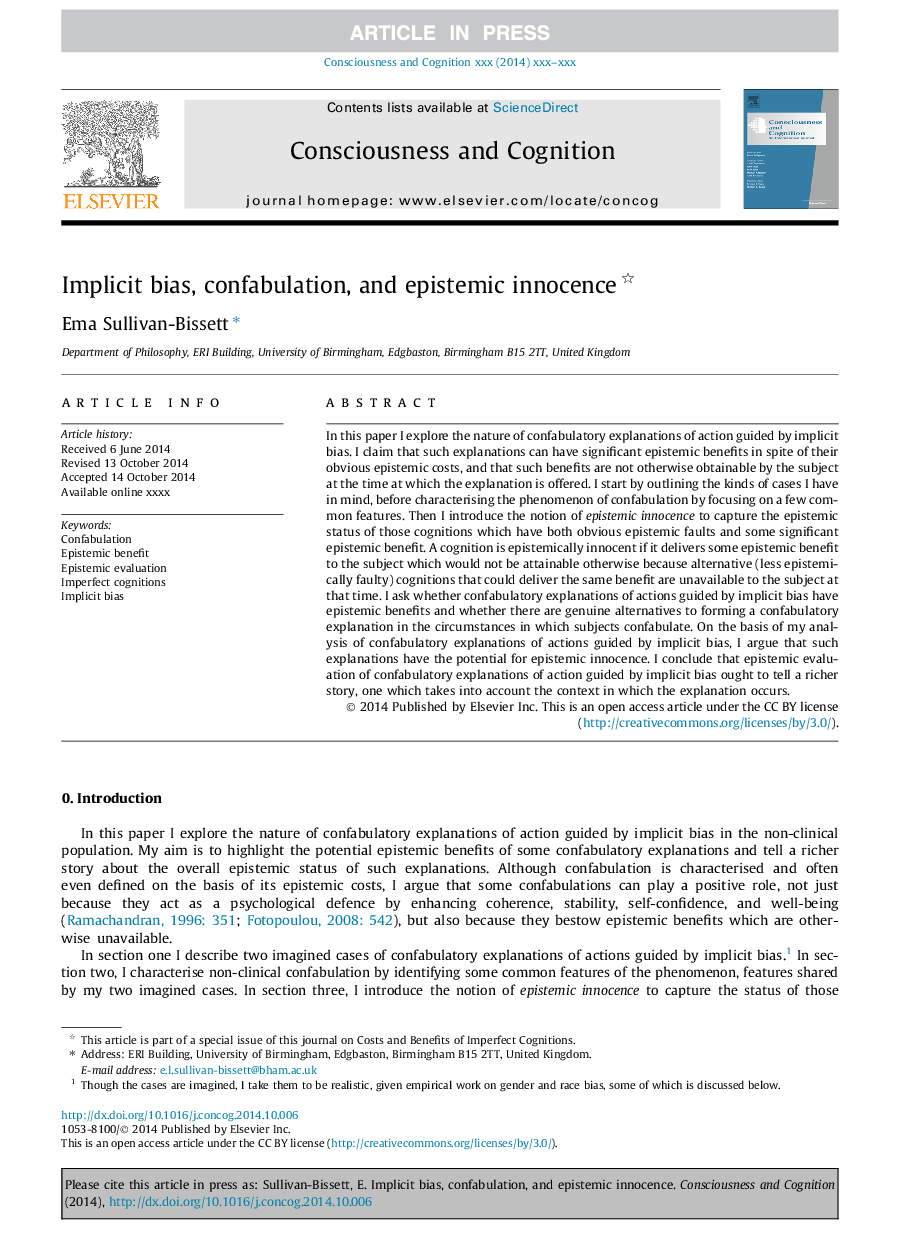| Article ID | Journal | Published Year | Pages | File Type |
|---|---|---|---|---|
| 7289387 | Consciousness and Cognition | 2015 | 13 Pages |
Abstract
In this paper I explore the nature of confabulatory explanations of action guided by implicit bias. I claim that such explanations can have significant epistemic benefits in spite of their obvious epistemic costs, and that such benefits are not otherwise obtainable by the subject at the time at which the explanation is offered. I start by outlining the kinds of cases I have in mind, before characterising the phenomenon of confabulation by focusing on a few common features. Then I introduce the notion of epistemic innocence to capture the epistemic status of those cognitions which have both obvious epistemic faults and some significant epistemic benefit. A cognition is epistemically innocent if it delivers some epistemic benefit to the subject which would not be attainable otherwise because alternative (less epistemically faulty) cognitions that could deliver the same benefit are unavailable to the subject at that time. I ask whether confabulatory explanations of actions guided by implicit bias have epistemic benefits and whether there are genuine alternatives to forming a confabulatory explanation in the circumstances in which subjects confabulate. On the basis of my analysis of confabulatory explanations of actions guided by implicit bias, I argue that such explanations have the potential for epistemic innocence. I conclude that epistemic evaluation of confabulatory explanations of action guided by implicit bias ought to tell a richer story, one which takes into account the context in which the explanation occurs.
Keywords
Related Topics
Life Sciences
Neuroscience
Cognitive Neuroscience
Authors
Ema Sullivan-Bissett,
